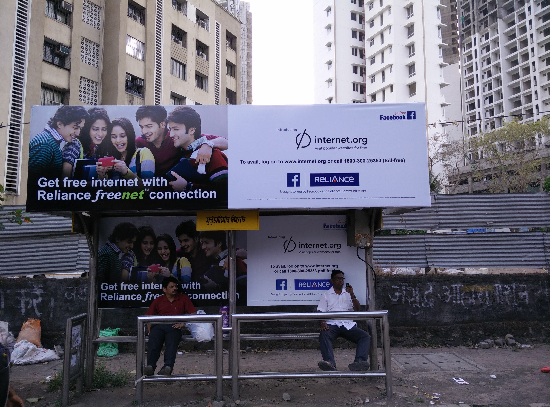Internet.org is offensive
Try to picture one of the millions of people who convert their very limited income into mobile network credit. For many, a mobile account balance is effectively their first bank account.
For this kind of person, “sponsored data” can be a smart way to socialize technology usage, accelerate adoption of internet services, and—eventually, if enough people get online—kickstart digital economic development.
That’s part of the rationale behind internet.org. But here’s the problem.
Internet.org is neither the “Internet,” nor a charitable and development-oriented “.org.”
Internet.org is now a carefully managed partnership program, through which Facebook has curatorial power similar to an app store.
Participating mobile network operators underwrite the cost of data for apps that are accepted into the program, so these apps are “free” to the user. Facebook can collect all user data transmitted through apps that are participating the program, further cementing its user acquisition and analytics lead in the emerging markets (it helps to already be running Facebook and WhatsApp). Both Facebook and the mobile operator will be able to reject apps for any reason.

Facebook is characterizing this commercial market development activity in Africa and South Asia as “lifting up the disadvantaged.” It’s also analogized this activity to “affirmative action” and 911 emergency services. You’ll find many such eyebrow raisers from Mark Zuckerberg, in his video statement defending and announcing changes to internet.org.
If you’re Facebook, internet.org is a smart ($$$) thing to be doing. And at some level, Zuckerberg surely believes it’s the right thing to be doing. That moral certainty is scary. Here’s what else you’ll find in that video, responding to the concern voiced by nearly 1 million Indians:
 a lot of humanitarian rhetoric to occlude the fact that this is a commercial activity
a lot of humanitarian rhetoric to occlude the fact that this is a commercial activity- a strawman argument that opponents believe it is “somehow wrong to offer services to support the unconnected”
- a false binary: “helping people is a better path than shutting them out”
- an accusation that opponents are putting “intellectual purity of technology above people’s needs”
- an assertion “we decide our character” by where we stand on this issue
All of this is quite offensive to the objectors in the Indian access to knowledge movement, who have been working on critical policy and infrastructural issues in their country since well before Zuckerberg was a techno-opportunist in a Harvard dorm room. Imagine the chutzpah in telling these people that “one’s character” is determined by which side he or she falls on this issue.
Some will recieve internet.org’s “opening up” positively. But look closely and you will see that Facebook has doubled down on the the idea that there’s a “free” tier of the internet, which it owns and manages. But it’s not really free—because Facebook is getting valuable user data and market positioning.
And if you think this is the wrong path for digital economic development, Zuckerberg wants you to know that you are lacking character, are an unsympathetic neckbeard, don’t care about fishermen in Africa, and so on.
Let’s be frank. While limited zero-rating of specific public interest applications can indeed be a good thing, it should not be the role of a Silicon Valley company to be the arbiter of what services people in the developing world get for free. Nor should the participating network operators get to make these decisions for users without a clear roadmap toward an open, competitive platform.
Does Mark Z really expect us to believe that after 25 years of the open Web, the best we can do for the world’s poor is a privately managed app store with preferential network access? If Facebook really cared about empowering the next wave of internet users, they’d be advocating and underwriting a sponsored data program to provide access to the whole Web. There’s still time—and it would be the right, visionary, and courageous thing to do.
Instead, it’s advocating a poor internet for poor people. A vision for the future in which hundreds of millions of people are using a suite of simple, data-mining services that require preferential agreements with network operators.
Internet.org isn’t a solution to the lack of paying customers—it’s a scheme to capture and monetize those non-paying users. This is a recipe for data extraction, not economic development.
The need for an open Web has never been more pronounced. The reason the internet generates economic development and political power is because unexpected things can happen. It’s been an open, unowned platform where anyone can publish and access the information they want—without any central planning. This is in every way the opposite of internet.org.
“Connecting the world” is a lucrative proposition. Otherwise Facebook wouldn’t be in the game. There are tremendous incentives for government, finance, and private capital to transition people from the informal economy to the mobile economy. So one way or another, the poor will have access to the internet.
The real question is, what kind of internet will they get?
About this entry
You’re currently reading “Internet.org is offensive,” an entry on Ben's blog.
- Published:
- 5.5.15 / 6pm
- Category:
- Digital Divide, Economic development, Equity, M4D, Net neutrality, Zero rating
- Tags:


Comments are closed
Comments are currently closed on this entry.